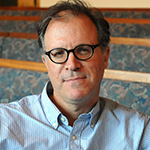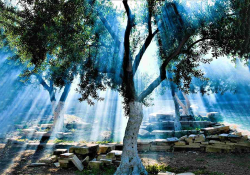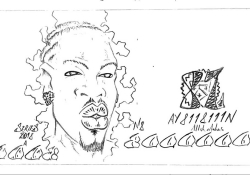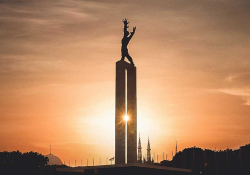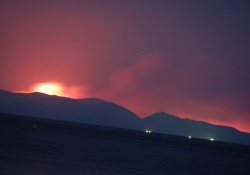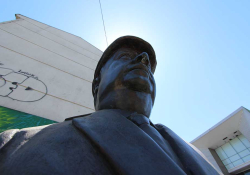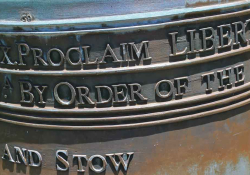A Poem from the Americas
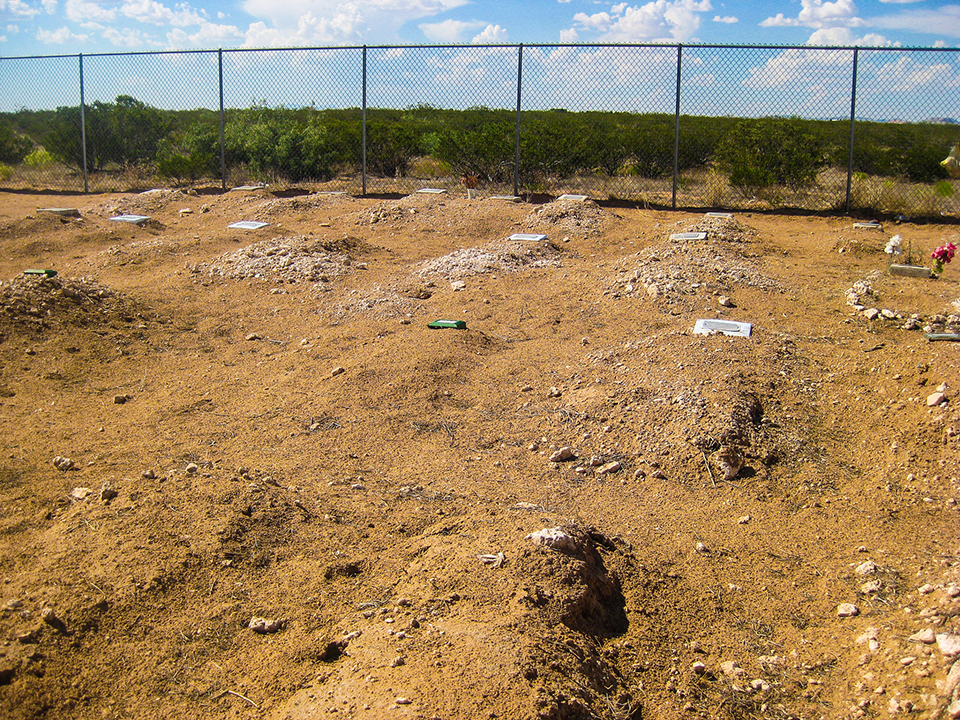
The following is an excerpt from part 2 of a four-part poem called “The Wall.” For more on the genesis of the poem, read the author’s New York Times op-ed, “Trump, the Wall and the Spanish Language.”
Who Whoes the Who?
¡ATENCIÓN!
Pero nadie te oye . . .
America
is
home
to romantics.
All
are
busy
at
work:
incessant,
industrious,
back
and
forth,
coming and going.
Ziggurats
are built
by
deranged
architects
at astonishing
speed.
The skyline
changes
every second,
nothing
lasts
a day:
cities rise
and fall.
The tyranny of the new.
Each
wall
is
made
of
bricks,
cement,
beams,
plaster.
Yet
walls
alone,
disengaged,
don’t
result
in
anything—
but
in
walls
alone,
disengaged
and
nothing . . .
Excess:
more is more.
The future
is
a work
in
progress.
It
isn’t
now
but
across the line:
mañana,
a promise
delayed.
¡Muro de mierda!
The
ghost
of
my brother
a cuestas,
I’ve
walked
most
of it,
along
1,989 miles,
through the coagulum
of the gangrened river,
fetid,
ghoulish,
its perimeter
renouncing life.
Other
walls
are
sheer
preparation:
this,
THIS
is the wall
to end all walls.
No
other
imaginary
line
in the world
is crossed
more frequently;
no other line
in the planet
smells as fetid.
Sí, patrón:
’tis the end of my South,
and ’tis
the end of your North.
Just move:
go, go, go . . .
in motion,
though the motions:
No espeak inglés?
Just pretend,
amigo.
Over there
not everyone
speaks
the language
either.
¡Gracias, gringuito!
I love you more than
you’ll ever know.
Puta madre:
El Camino del Diablo,
the road
where the Devil tallies.
See them:
thousands of crucifixes
irrigate the land.
Souls,
yours,
mine,
lay underneath—
a final pose,
awaiting
resurrection,
a chorus of
laments,
murmurs,
laughter.
These
are
the souls
of
brave
women and men,
who struggled here.
They
have
consecrated
this
unfertile
ground
above and beyond
our
poor
to add or detract.
Death
is unfinished work,
and
it is left to US,
witnesses
to their dismay,
to
do
the unfinished work
they
so
nobly advanced:
to bring food to our tables,
to make us believe
we are free,
to allow us the dream
of being
a
nation.
A nation
without
a
backbone?
No,
eradicate
their
memory:
cut
them out.
Use them,
abuse them,
ignore
their
plight.
Build
a wall—
higher,
stronger,
mightier . . .
Don’t U see it yet?
It isn’t steep enough,
tough enough,
firm enough.
It
isn’t
bloody
enough.
For
we have decided
to stick
to hate.
Love is too great
a burden
to bear.
For
stronger
than
love
is hate.
All together now:
WE WILL BUILD A HUGE WALL.
A BEAUTIFUL WALL.
And YOU,
you,
u,
will pay for it,
a wall
from sea to shining sea
(though 1,959 miles
of mainland,
plus 18 more maritime miles
in the Pacific,
and 12 in the Gulf)
a wall
to
leave out
the BAD HOMBRES.
El Presidente:
the Founding Fathers
are
rolling in their graves.
The Chinese Emperor
Shih Huang Ti
(also known as Qin Shi Huang),
who
in
220–206 B.C.E.
built
the original Great Wall of China,
hated
his mother.
Such
was
his
abhorrence
that
he
decided
to
forever
erase her
from
memory.
But
how
does
one
expurgate
memory?
By
destroying
its
foundations.
Thus,
Shih Huang Ti
ordered
the burning
of
all books
in
the kingdom.
History
starts
here,
history
starts
now.
